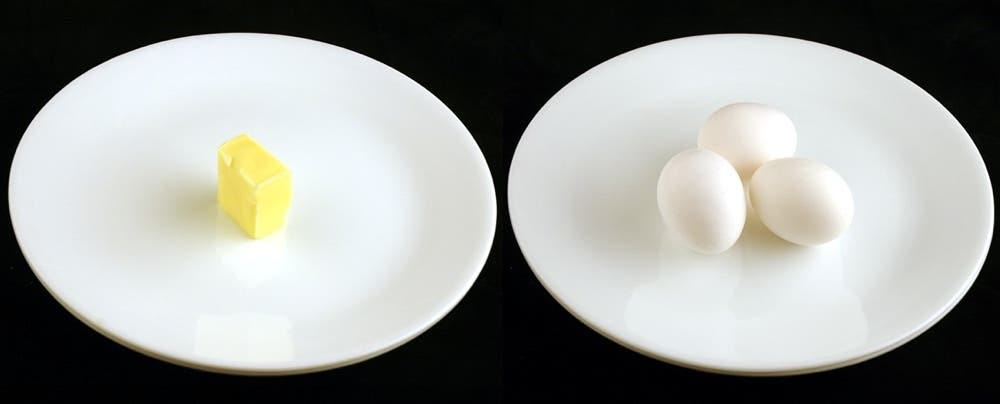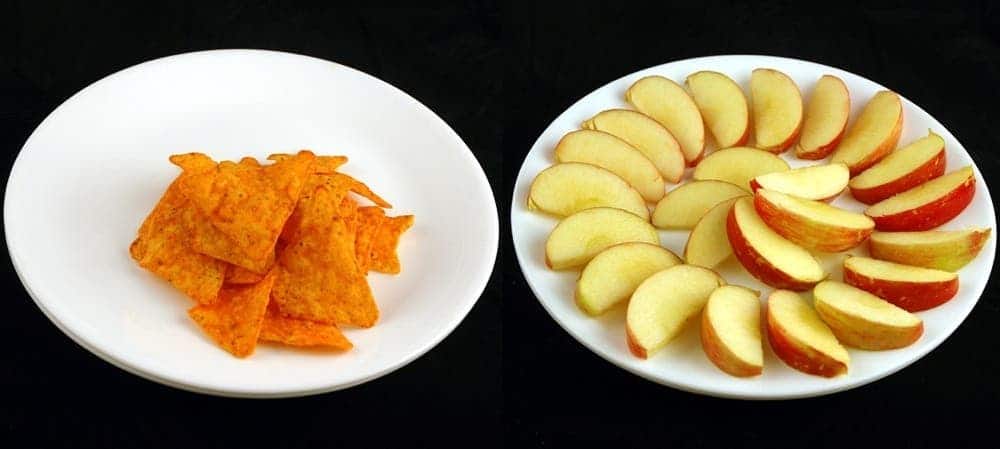Nutrition Tracking Is Not Enough
Introduction
While many struggle to get into the gym, there are those of us who view the weight training aspect of getting in shape as the easy part.
It's been said a million times, but diet and nutrition are, in many ways, the most difficult part of getting into shape. This is partially due to it a full-time job whereas the gym is only couple of hours per week (at most). But the difficulty with diet is many times a lot deeper than that. What we consume and why is largely a behavioral issue, tied to emotions, stress, addiction…
If you've eaten poorly your entire life, the idea that you'll suddenly start making better choices and adopt an entirely new way of eating is extremely difficult for most people to simply undertake. Like anything difficult, it’s a process that requires examining your own behaviors, evaluating your own thoughts, identifying the thoughts that cause you to make the poor choices, and choosing a better, healthier path forward. This is the basis of CBT - Cognitive Behavioral Therapy.
What I’ve discovered in working with people trying to lose weight is the large-scale adoption of nutrition trackers to gauge daily intake. Frankly, these apps are brilliant. I’ve been using one of these apps for several months and I’ve never been more efficient with my diet than ever before — I can’t recommend them enough. They work! But there is a caveat.
Nutrition Tracking
Just because you are tracking your nutrition doesn’t mean you are eating healthier and smarter foods. In fact, I’ve seen the reverse trend in many cases that raises a lot of concerns. Instead of eating healthier foods, there are many who simply try to fit in the same poor food choices into these apps and it’s making their lives miserable.
It comes down to the very simple fact that some foods will leave you hungry (or hungrier that you started) while other foods with the same calories will leave you full and satisfied. But they know they have to hit their calorie goal, so they starve for most of the rest of the day. Not only is this a great way to crash and reverse all your progress in the long-term, but your performance in the gym, at work, at sleep will be effected negatively. Id prefer someone eat slightly higher calories, get better workouts at the gym, perform better at their jobs (resulting in less stress and therefore cortisol), and get better sleep (better hormonal, rather than starve and screw up their lives in every way just to get into a 500 calorie deficit. It's essential to remember the saying,
It's important to bear in mind the adage, "One meal won't derail everything." While this statement holds true from a technical standpoint, it falls short when it comes to behavioral change. I'm not suggesting that a single poor dietary choice will undo all your progress. However, drawing a parallel with addiction recovery, it's crucial to examine what led to the lapse in dietary choices rather than brushing it off with a "better luck next time" attitude. Analyzing the reasons behind such lapses can yield valuable insights for long-term success on your journey to improved nutrition.
Conclusion & Steps Forward
Tracking your nutrition is not only an excellent first step to getting a hold of your diet, it may be the best first step. Most people have no idea the calories they consume in any given meal. Tracking apps can be massively illuminating with this reality. However, beyond this, it’s up to you to make better choices. You can either eat pastries and bacon before noon and starve the rest of the day (or eat above your calorie goal), or you could eat more whole foods and less unprocessed foods like fruits, vegetables, lean proteins, and whole grains. These foods are rich in nutrients and much higher volume (meaning they require more chews to finish).
Volume, as measured by the number of chews required, plays a pivotal role in satiating hunger. Consider the following scenario:
Meal 1 has a 10/10 palatability score (super tasty and high in calories) but is consumed in just 6-7 bites. In contrast, meal 2 has a 7/10 palatability score (tasty enough) and provides the same or fewer calories as meal 1.
Meal 2 offers greater volume and demands 20 bites to finish.
Despite meal 1 being delicious, it is consumed rapidly, which can trick the brain into thinking you're still hungry, despite the calories consumed. Meal 2, with its prolonged chewing requirement, signals to the brain that you are more full by the time you finish, even if the calorie intake is the same or lower.
When weighing the cost-benefit analysis, I increasingly lean towards choosing meal 2. These concepts can be compounded by the idea that the more whole foods you incorporate into your diet, the more palatable they become.
Personally, the thought of baked potatoes with Old Bay seasoning and vinegar makes my mouth water more than pizza. While pizza may be slightly more palatable, it's not enough to tempt me into ruining my diet.
Consider these food comparisons of the same calories:
In the end, achieving better nutrition is not just about numbers on a screen; it's about making thoughtful, sustainable choices that support your overall well-being. Embrace the power of mindfulness in what you consume, and let it guide you to a more sustainable and fulfilling relationship with diet and nutrition. Your body, mind, and future self will thank you for it.





